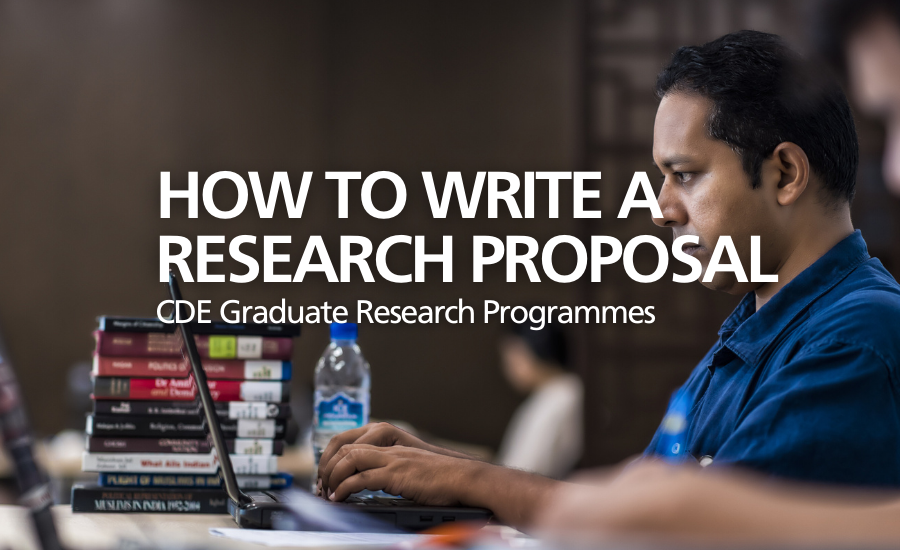
Follow this guide to write a compelling research proposal to support your application for a PhD or master’s degree.
WHAT IS A RESEARCH PROPOSAL?
WHY IT MATTERS
A research proposal sets the parameters of your intended research. It serves as a roadmap that brings clarity to your idea and facilitates the research process. Therefore, it needs to include details on how you plan to conduct your research, including:
- Approach and timeline
- Feasibility and timeline
- Resources and other necessary factors for progressing your research
Typically, research proposals are limited to 2,000 words. However, we recommend that you confirm the requirements of your programme and consult with your thesis advisor. A concise, well-organised proposal demonstrates your ability to communicate effectively—an essential skill that assessors highly value.
WHAT IT SHOULD CONTAIN
Project Title
Your title should clearly communicate the focus of your proposed research.
Thesis Advisor
If you have secured an advisor's agreement, include their name, department, and faculty.
Proposed Mode of Research
Outline the method of research you intend to follow. This will likely be aligned with your discipline and should describe the style or approach of your research.
Aims and Objectives
Explain the purpose of your research and what you aim to achieve. Are you addressing a gap in the current literature, testing a theory, or seeking to prove/disprove a hypothesis? A well-focused aim identifies the desired outcome of your research.
Objectives are the steps needed to accomplish your aim, with each logically building upon the previous one. Ensure your objectives are clearly sequenced to support your research's progression.
Synopsis
This is a succinct summary of your research, highlighting the key aspects of what you will investigate and the expected outcomes. It covers the what, why, and how of your research.
A good test of your synopsis is to have someone read it without reviewing the full proposal. They should be able to understand your research focus from this alone.
Background
Now that your research question is clear, explain the context and relevance of your work. Demonstrate your understanding of the current state of research in your area through a literature review. This shows assessors that you are familiar with the key discussions, important studies, and influential researchers in your field. Highlight how these contribute to the existing research landscape.
Expected Research Contribution
In this section, address the following:
- Why is your research question significant?
- How does existing research fall short, and what gap are you addressing?
- What impact will your research have on your field?
Explain whether your research will expand current knowledge, apply it in new ways, solve a problem, test a theory, or challenge an existing one.
Showcase how your research is innovative and unique. Additionally, make connections between your work and the department to which you are applying, citing specific research by your chosen thesis advosor or department that aligns with and supports your proposal.
Proposed Methodology
Summarise the methodology and techniques you will use. Include the materials and equipment required, the theoretical frameworks you'll draw on, and how you will gather data.
Justify your choice of methodology, explaining why it is the best approach for your research and why other methods may not be as suitable. Address any limitations, ethical considerations, and the feasibility of completing the research within the given constraints.
Work Plan
Your work plan should outline the feasibility of completing your research within the given timeframe and support the achievement of your objectives throughout your degree.
Identify key milestones at various stages of your research. For a PhD or master's research degree, which typically takes 2–4 years of full-time study, you might want to provide a detailed plan for the first year and broader plans for the following years. This will show that your research is both original and achievable within the allotted time.
Resources
Detail the resources necessary for your research, such as equipment, fieldwork expenses, travel, and any associated costs. Provide a proposed budget to demonstrate that your project is realistic in terms of financial requirements, and highlight any adjustments needed.
Bibliography
Remember to list the references you have cited throughout your research proposal.
Office of Graduate Programmes (OGP)
College of Design and Engineering, NUS
Blk EA #06-16
9 Engineering Drive 1
Singapore 117575



